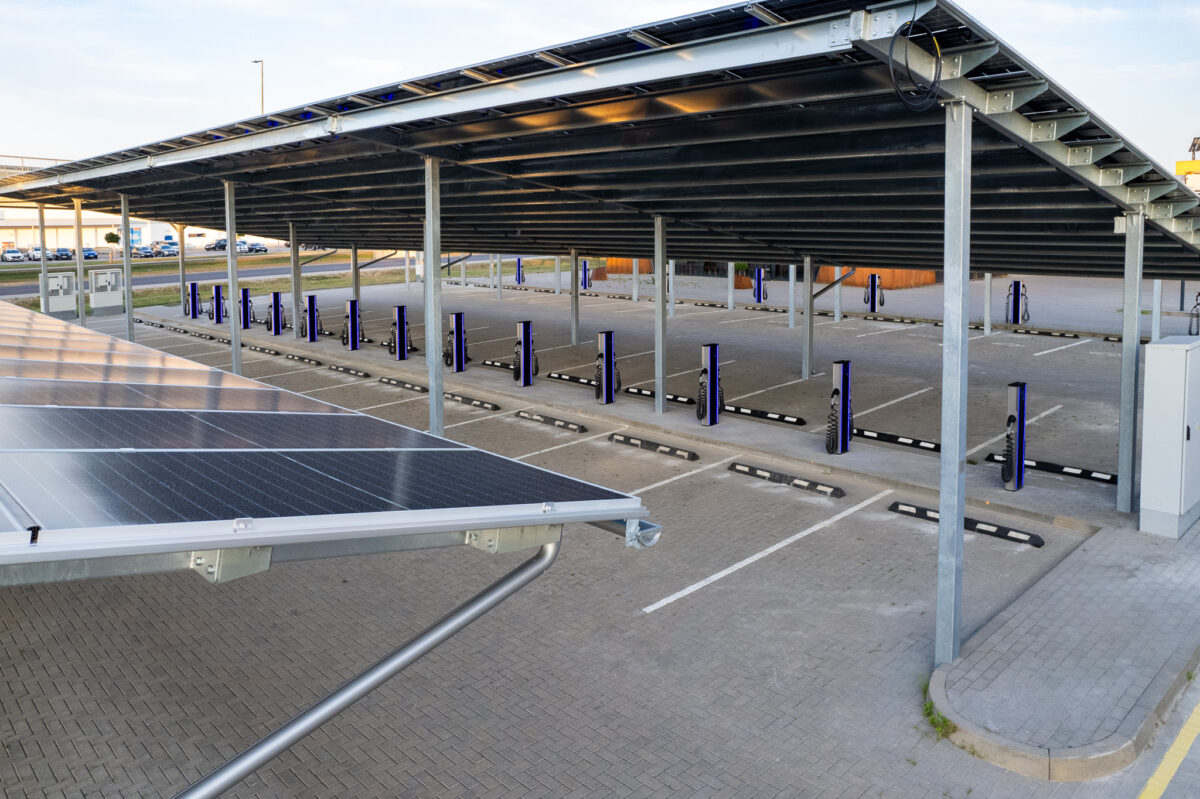Lithuania-based Soliport has commissioned a 250 kW solar carport linked to 40 electric vehicle (EV) charging points.
The company claims the system is currently the largest power plant installed over parking spaces in the Baltic States.
“Although the PV carport is grid-connected, only a small portion of the electricity that is generated is fed into the grid,” the company's managing co-founder, Gediminas Onaitis, told pv magazine. “Most of it will be used to charge around 4,000 electric cars per year.”
The EV charging systems were provided by Lithuanian specialist Elinta Charge and have two 22 kW charging sockets each. They were also equipped with Tesla superchargers.
A power management system (DLM) ensures that the input load is not exceeded during charging, so that the stations can charge at maximum capacity, utilizing all renewable solar electricity and residual input power.
The carport hosts 580 W bifacial double-glass modules from Jinkosolar and inverters from China-based Solax.
The carport structures are designed by Soliport and adapted to local infrastructure and existing parking spaces. “They are built without loss of parking spaces, with foundations hidden underground,” said Onaitis. “They have minimal impact on driving comfort and the possibility to open car doors. It is important not to complicate driving, especially in public parking spaces.”
This content is protected by copyright and may not be reused. If you want to cooperate with us and would like to reuse some of our content, please contact: editors@pv-magazine.com.






By submitting this form you agree to pv magazine using your data for the purposes of publishing your comment.
Your personal data will only be disclosed or otherwise transmitted to third parties for the purposes of spam filtering or if this is necessary for technical maintenance of the website. Any other transfer to third parties will not take place unless this is justified on the basis of applicable data protection regulations or if pv magazine is legally obliged to do so.
You may revoke this consent at any time with effect for the future, in which case your personal data will be deleted immediately. Otherwise, your data will be deleted if pv magazine has processed your request or the purpose of data storage is fulfilled.
Further information on data privacy can be found in our Data Protection Policy.